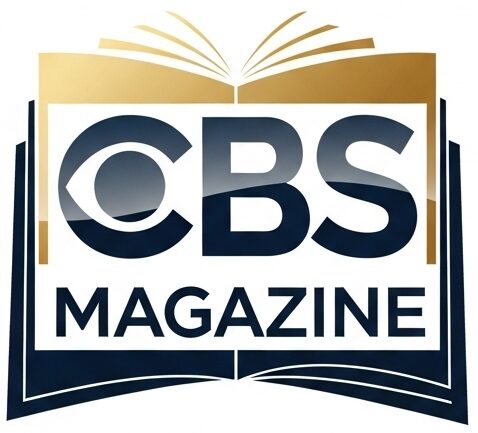The United States is experiencing a whirlwind of political activity in September 2025, with significant developments involving President Donald Trump, the Jeffrey Epstein case, and various policy disputes. A major point of contention is a controversial letter allegedly signed by Trump for Epstein’s 50th birthday, which has sparked debates about authenticity and transparency. Alongside this, issues like immigration raids, foreign aid disputes, and international relations are shaping the political landscape. This article breaks down these events in simple English to help you understand what’s happening.
The Epstein Letter Controversy
- What Is the Epstein Letter?
- A letter from 2003, reportedly signed by Donald Trump, was included in a scrapbook for Jeffrey Epstein’s 50th birthday. The letter includes a suggestive note and a drawing of a woman’s torso, raising questions about Trump’s past relationship with Epstein, a convicted sex offender.
- The House Oversight Committee released this letter after subpoenaing Epstein’s estate. Democrats shared it on social media, highlighting its significance.
- White House Response
- The White House, through Press Secretary Karoline Leavitt, denies that Trump wrote or signed the letter. They claim the signature does not match Trump’s recent ones and support a forensic analysis to prove it’s not his.
- Critics point out that Trump’s signature style in the 1990s and early 2000s, often just “Donald” with a line, matches the letter’s signature, unlike his current style.
- Why It Matters
- The letter fuels ongoing scrutiny of Trump’s ties to Epstein, especially since Trump has called the Epstein case a “Democrat hoax.” The controversy grows as victims and lawmakers demand the release of all Epstein files for transparency.
- The White House’s push for forensic analysis aims to clear Trump’s name, but the lack of a cited report from “signature analysts” has raised doubts about their claims.
Other Major Political Developments
- Michigan Fake Electors Case Dismissed
- A Michigan judge dropped felony charges against 16 people who falsely claimed Trump won the 2020 election. The judge said there wasn’t enough evidence to prove they intended to commit fraud.
- Michigan’s Democratic Attorney General, Dana Nessel, criticized the ruling, saying the electors tried to “steal the votes of millions.” This is a setback for efforts to hold Trump allies accountable for election interference.
- California Governor Criticizes Trump
- California Governor Gavin Newsom used his State of the State address to accuse Trump of targeting California with policies like sending National Guard troops to Los Angeles to stop protests against immigration raids.
- Newsom called Trump’s administration chaotic and said California is fighting to protect its values, like clean air and water, against federal overreach.
- Supreme Court Backs Trump on Foreign Aid
- The U.S. Supreme Court temporarily allowed Trump to withhold $5 billion in foreign aid that Congress had approved for global development and peacekeeping. Trump called the aid “wasteful” and used a rare tactic called “pocket rescission” to block it.
- This decision, led by Chief Justice John Roberts, is part of Trump’s effort to reduce U.S. global spending, which has led to dismantling parts of USAID.
- Trump’s Tariffs Face Legal Challenge
- The Supreme Court will review whether Trump’s global tariffs, imposed under a 1977 emergency law, are legal. A lower court ruled that Trump overstepped his authority, but the tariffs remain in place during the appeal.
- These tariffs have caused trade disputes with countries like China and India, creating economic uncertainty worldwide.
- Immigration Raid Controversy
- A leaked document revealed that at least one South Korean worker with a valid visa was detained during a massive immigration raid at a Hyundai factory in Georgia. The worker was pressured to accept “voluntary departure” despite no visa violations.
- This raid, part of Trump’s anti-immigration campaign, has strained U.S.-South Korea relations, with 300 South Korean workers facing deportation.
- Lisa Cook’s Fight to Stay at the Federal Reserve
- A federal judge ruled that Federal Reserve Governor Lisa Cook can keep her position while suing Trump, who tried to fire her over unproven mortgage fraud allegations.
- Trump’s move is seen as an attempt to control the Federal Reserve, which has resisted his demands for lower interest rates. The case could impact the Fed’s independence.
- International Tensions with Russia
- Poland, a NATO ally, shot down Russian drones entering its airspace, prompting U.S. lawmakers to call it an “act of war.” This incident follows Russia’s attacks on Ukraine, raising fears of escalation.
- Republican Representative Joe Wilson urged Trump to impose sanctions on Russia, while Democrat Senator Dick Durbin called for stronger NATO defenses.
Why These Issues Are Important
These events show how Trump’s policies are creating waves both in the U.S. and abroad. The Epstein letter controversy keeps questions about Trump’s past in the spotlight, especially as he resists releasing more documents. His immigration raids and military deployments, like in Washington, D.C., and Los Angeles, have sparked protests and legal challenges, with critics saying they violate rights. The Supreme Court’s involvement in disputes over tariffs and foreign aid highlights Trump’s bold use of executive power, which could reshape U.S. economic and foreign policy. Meanwhile, international incidents, like the Russian drones in Poland, add to global tensions.
What’s Next?
- Epstein Case: The call for forensic analysis of the letter’s signature could either clear Trump or deepen the controversy if the signature is verified as his. Lawmakers and Epstein victims continue pushing for all files to be released.
- Legal Battles: The Supreme Court’s rulings on tariffs and foreign aid will be decided in late 2025, affecting global trade and U.S. foreign policy. Lisa Cook’s case could set a precedent for the Federal Reserve’s independence.
- Immigration and Foreign Policy: Trump’s immigration raids and tariff threats may strain relations with allies like South Korea and India. The response to Russia’s actions in Poland could lead to new U.S. sanctions or military support for Ukraine.
Conclusion
The U.S. political scene in September 2025 is marked by controversies that touch on transparency, executive power, and international relations. The Epstein letter debate is a focal point, with the White House’s push for forensic analysis aiming to settle questions about Trump’s involvement. At the same time, Trump’s policies on immigration, tariffs, and foreign aid are sparking legal and public backlash. These issues will likely shape the political landscape as the nation heads toward the next election cycle.



















